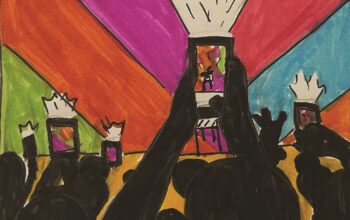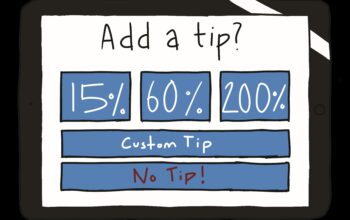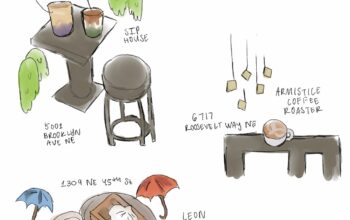Anyone who has ever read or written a piece of poetry can attest to the weight of a single word. In poetry, more than any other literary medium, it is of utmost importance to chose the most impactful word at all times. Even a single word can exert immense power over a precarious thread of connotations and can speak to the unspoken lessons embedded in language. It is a poet who truly understands how much a single word can say. There is no more impactful and emotional styling of poetry than cussing someone out profusely.
Obscenities allow one to vent one’s grievances in a nonviolent way. Sure, it is jarring to be at the receiving end of them, but “words will never hurt me.” While this is true physically, mentally it is a different story.
Expletives are carefully plucked from a wide variety of options based on which ones will cause the most visceral reaction in the receiver. The person cursing, just like the poet, on their quest to find the sharpest words must then submit to the hierarchy of swears. This ranking begins the distinction between insults and simple profanities.
Swears can be directed at anything from sluggish traffic to a malfunctioning computer. One of the more fascinating aspects of obscenities such as “a**hole” and “sh*t head” is how they differ so much from other profanities. Although both can be offensive, they do not target specific groups of people. For instance, “f*ck you” is a phrase that transcends gender and racial divisions with an innate ability to offend anyone. Yet it is because of its versatility with whom it targets that this expletive loses some power.
The far more impactful obscenities are insults, which are directed at and tailored to particular people. Racial, religious, and political groups as well as classes, cultures, and sexual orientations: prompted to think about any one of these and a myriad of slurs will come to mind. For example, in comparison to “f*ck,” “wet-back” causes a far more visceral reaction because it is a narrowly tailored insult, which makes it more impactful. Furthermore, it isolates the receivers by calling out certain aspects of them, cementing denigrating connotations onto the targets and erasing all other facets of their identities.
Insults feed upon the distinctions between categories of people, attempting to exacerbate societal divides. And arguably there is none greater than the most widespread and violent division in the world: that between men and women.
There are unachievable ideals women are expected to embody and punished when they do not. “Slut” and “whore” are two of the most common words used to shame a woman who is believed to be too sexual or has engaged in excessive sexual activity. These same arbitrary societal laws can also shame women for not being sexual enough, with words such as “prude” and “tease.”
This is not to say women are the only victims of gendered insults. Men are often insulted with words such as “pussy” or “wuss,” wounding their masculinity or strength. Other insults usually aimed at men are “dumb ass” and “idiot.” These words are directed to men who the insulter perceives as having subpar intelligence. Although female aptitude can also be insulted, it is instead often through words such as “bimbo” or “airhead,” which invoke a sense of overt sexuality as well as the inability to perform mentally.
Why is it that some words can be used to disparage one sex and not the other? This is, again, because an insult is fundamentally a statement regarding what one person thinks another person lacks. The thing the person is lacking could be anything that contributes to an ideal, for example money, class, or attractiveness. With regard to gender, one sees that the ideal versions of men and women vary greatly.
Perhaps, the most telling insults are homophobic slurs; words such as “fairy” and “fag” are used to degrade and de-masculinize men. These words shame men for loving other men like heterosexual women do. These insults emerge from a sludge of hyper-masculinity, homophobia, and misogyny. It is through expressions such as “pussy,” “fairy,” and “you throw like a girl” that underlying biases about gender are exposed. What is traditionally considered ideal in women is considered abhorrent in men. Therefore, numerous insults directed at men equate them with women. It is emblematic that women are insulted both directly and indirectly.
The goals of language arts, such as poetry, are diverse and the effects can be colossal. Arguably the noblest of these intentions is the poet’s desire to unearth humanity’s problems, conflicts, and inequalities. Although inadvertent, insults can similarly accomplish worthy goals. Through the crude and volatile nature of insults the sordid underbelly of society’s worst qualities can be revealed. Insults punctuate every person’s life, but whom these words are directed at affect and reveal their meanings, especially when concerned with gender. Insults both expose and amplify prevailing discrimination that continues to impede the progress of equity.


